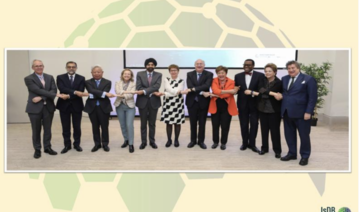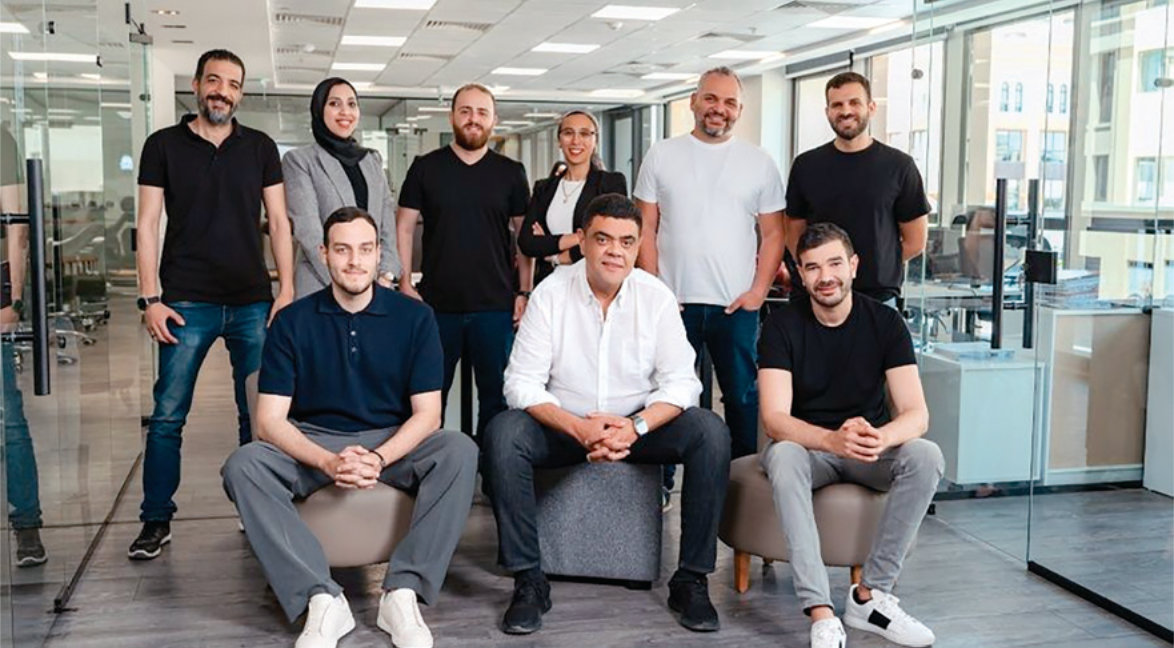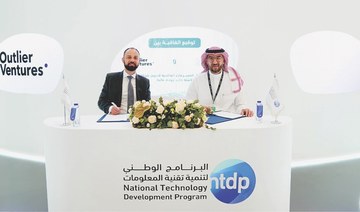NEW YORK: Julie Campbell had to rethink her new wallpaper business before she could sell her first sheet.
Campbell launched Pasted Paper in February, but soon after, the coronavirus forced the cancelation of the trade shows where she expected to introduce her wallpaper to prospective retail customers. Suddenly, the $30,000 she had invested in creating the wallpaper was at risk, dependent on her transforming the company to sell directly to consumers.
To save Pasted Paper, Campbell learned online selling and marketing — skills not immediately in her wheelhouse.
“I had so much inventory and I needed to sell it. I was forced to figure this out,” Campbell says.
A recession amid a pandemic may seem like the worst time to start a business. Despite millions of loans and grants from federal and state governments, it is estimated that hundreds of thousands of companies have already failed since the virus outbreak began.
Yet, from people like Campbell, who had invested too much money to turn back, to others who lost their jobs and saw starting their own company as the best path forward, thousands of Americans have opted to take the plunge. A few have even folded one business and quickly launched another better suited for the “new normal” of the pandemic.
Owners of all these fledgling companies face a tough road as they try to bring in customers and thrive. While nearly 80 percent of startup companies had survived their first year in 2019, according to research by the Kauffman Foundation, those businesses had the benefit of launching in a strong economy.
Prosperity is tougher in a downturn — consumers and businesses spend less and new ventures tend to have large startup costs and low revenue. US gross domestic product plunged by nearly a third from April through July, and there are still more than 13 million people unemployed.
Slightly over 1 million companies that have employees were launched in 2018 while 925,000 closed, according to the latest available data.
Despite the pandemic, interest in starting a business has picked up as parts of the US economy reopened. The number of applications for business tax identification numbers was down more than a third at the end of March compared to year-earlier levels; in the week ended Sept. 5, the most recent data available, they were up 93.6 percent. The applications don’t necessarily mean businesses were launched, but the numbers do show that despite the virus’s grip on the economy, people were considering starting companies.
Unemployed people needing a source of income likely accounted for some of those applications, says Dane Stangler, a researcher at the think tank Bipartisan Policy Center. But he also says owners who closed their businesses permanently early in the pandemic might be starting up again with a different entity.
Yavonne Sarber knew her Sugar Whisky Sis restaurant in Covington, Kentucky, wouldn’t survive a government-ordered shutdown. So, she closed it for good and four weeks later opened an entirely new restaurant on the site, one focused on takeout and delivery.
“We couldn’t sit still — we knew we had to do something,” says Sarber, who also owns four Agave & Rye restaurants in Kentucky and Ohio.
She opened Papi Jocho’s Street Dogs and Cantina on May 5, less than two months after Kentucky restaurants and bars closed for inside dining. Business has been so good there that revenue at all her restaurants overall is up 25 percent from its pre-pandemic level even as indoor dining capacity at the Agave & Rye branches is limited to half.
Sarber’s husband Wade wanted her to proceed more cautiously before starting Papi Jocho’s. But she says, “you need to seize the moment — you have to choose to be a victim or you have to pivot.”
Business formations dropped sharply during the Great Recession and its aftermath, but many people, including some who lost their jobs to layoffs, did start companies. Among the well-known successes from that time are
Airbnb and Warby Parker, which sells eyeglasses online.
Within weeks as the pandemic spread across the country in February and March, Amy and Cody Morgan lost their executive jobs, Amy’s in real estate and Cody’s in the oil industry. Rather than try to find jobs, the couple, who live in Cypress, Texas, north of Houston, decided to start a pool servicing company called Pit Stop Pools.
Cody Morgan ran a similar business to help pay his college expenses 25 years ago. The Morgans anticipated that demand for services like pool cleaning and maintenance would be even greater than usual with people spending more time at home.
“It became imperative that this pool service company happen,” Amy Morgan says.
The couple applied for and received a traditional Small Business Administration loan to fund their startup costs; because they applied before the creation of the Paycheck Protection Program, they were able to get the money quickly. They used a broker to help them find customers, and now have about 90. They’ve been able to hire six workers and have outgrown the shed that housed their office and equipment.
Still, they must keep expanding. It will take 200 accounts to replace one of the salaries they made pre-pandemic, but the Morgans are optimistic that despite the competition for pool services in the city, they will be able to grow.
Like the Morgans, many new and prospective owners have chosen industries like home improvement or in-home gym equipment whose services are in demand, says Sara Moreira, a strategy professor at Northwestern University’s Kellogg School of Management.
“They are betting on the idea that this demand will be sustained,” Moreira says. “Even if you have a vaccine in a few months, we will think about having a nice place at home for an office, more than in the past.”
Deniz and Yeliz Karafazli were ready to put the finishing touches on their Manhattan cafe, Madame Bonte, and expected to open it in March. But as the virus spread across New York City, the siblings couldn’t get architects, air conditioner installers and other workers to come to the restaurant.
The work was finally finished in July, allowing the cafe to open, although its business has been limited by the city’s continuing ban on indoor dining. That ban will be partially eased starting Sept. 30 as officials allow restaurants to have indoor dining at 25 percent of capacity.
The cafe has survived because the Karafazlis’ landlord and some of their vendors gave them a break on payments. And Deniz Karafazli is heartened by the fact the cafe’s menu lends itself to takeout, with sandwiches and coffee, and revenue has been better than he expected.
“It was the right place at the right time — once we opened,” he says.






























